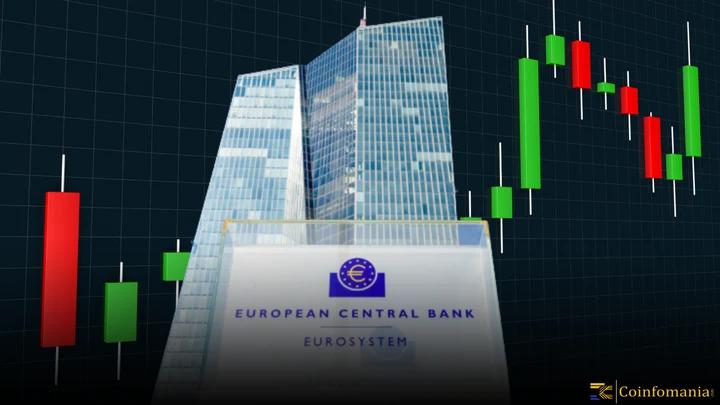Rising Trade Tensions Could Erode European Bank Profits, Warns S&P
S&P warns that European banks’ profits could decline amid rising trade tensions and corporate loan defaults.

Quick Take
Summary is AI generated, newsroom reviewed.
Rising trade tensions could lead to an increase in corporate loan defaults, affecting European banks’ profits.
Banks highly exposed to international trade and corporate loans, like Commerzbank, are at the highest risk.
Stress tests are used to assess banks’ resilience to economic shocks, allowing for proactive adjustments.
As of 24 June, S&P Global Ratings says that a marked dip in profits earned by European banks is subject to being compromised. Should trade animosity between the US and other world powers escalate, especially in the event that it translates to a high level of corporate loan defaults. This is one of the warnings after an examination that was conducted in a stress test that mimicked the impact of a trade war. The test is expected to determine the financial strength of the European banks in periods of economic and geopolitical turmoil. Since economies in the world are increasingly becoming interdependent, the chances of economic shocks such as trade wars spilling into the banking system are increasing. This will pose a direct threat to profitability.
Trade Tensions and Their Consequences on Corporate Lending
The trade wars, especially those of the US and other major economies in the world, tend to form a volatile market. This may end up leading to an increase in the cases of corporate loan defaults. With the geopolitical environment changing, companies might find it difficult to be financially stable. Moreover, there will be increased bad debts. In case these tensions further increase, there is likely to be an upsurge in non-performing loans (NPLs) in banks that have high exposure to corporate advances. This would affect the balance sheets and the financial health of such banks. According to the stress test conducted by the S&P, it is seen that the European banks are extremely susceptible to such a situation. This comes as many European banks have high exposure to corporate homes, along with industries that are directly linked to international trade policies.
The impacts of a trade war may be extensive. Any sudden rise in loan defaults would not only improve the financial sector but also cause a domino effect on the economy as a whole. In case bad debts trigger a loss in banks, then their ability to lend to other business entities will be greatly affected. Further, it will hamper economic growth to a greater extent. This would decrease the confidence of investors, and therefore, it would become even more difficult to see the European financial institutions survive the storm of geopolitical tensions.
European Banks with the Most Exposure to Corporate Loans
Those banks that hold considerable amounts of corporate credits and international trade are at the highest risk. Specifically, those institutions that operate largely in the manufacturing sector, export/import business, and international logistics. These are some of the first industries that are impacted by the interference of global trade. With reduced demand for goods and services, or when goods and services are expensive to purchase due to tariffs and trade restrictions. It is quite possible that the businesses in these industries default on loans, resulting in an increase in non-performing assets (NPA).
An illustration would be using the example of banks such as Commerzbank, which is one of the largest financial institutions in the state of Germany. It could incur huge losses during the occurrence of a trade war. Being one of the world’s providers in corporate lending, its effects on its bottom line would be significant not only in influencing the profit margins of the bank, but also in the entire financial ecosystem in Europe. This pressure on European banks would spread to the rest of the world markets. Further, the investor sentiments would be dampened, and the lending standards would become stricter all over.
Preparing for Future Crises: Stress Tests and Financial Resilience
In anticipation of such scenarios, financial regulators have introduced stress tests, which are used to determine how banks will perform in periods of economic uncertainty. These tests are used to estimate extreme situations in the economy, like increasing trade tensions. They will test the extent to which banks are able to sustain shocks in markets. For a trade war, the tests can be used to detect flaws in the banking system. This would enable the financial institutions and the regulators to initiate remedial measures before an actual war takes place.
The findings of the S&P stress test give a good idea of the weak spots of the European banking sector. Given that all banks might prove to be more or less isolated against trade-related strains, there are many less prepared banks that have to be brought to terms with further capital reserves. The flexibility of banks to the fluctuating economic environment will also play a critical role in the survival of the banks amid trade tensions.
References
Follow us on Google News
Get the latest crypto insights and updates.


